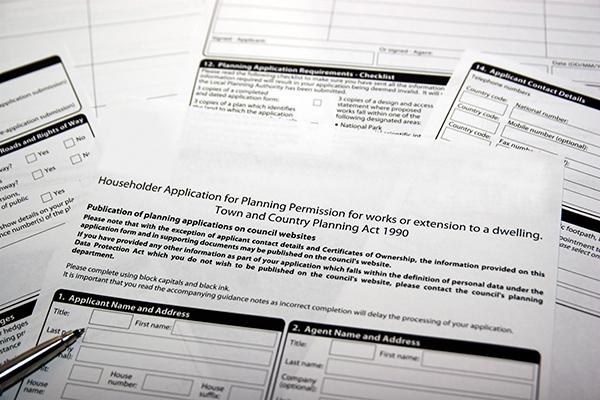You are viewing 1 of your 1 free articles

Hugh Ellis is director of policy at the Town & Country Planning Association
Our planning system ignores placemaking criteria
As the Town and Country Planning Association publishes an interim report by former housing minister Nick Raynsford, its head of policy Hugh Ellis calls for major change
The Raynsford Review has taken on the ambitious task of an end-to-end examination of the English planning system to see what, if anything, is worth saving from the wreckage of planning reform. The review is clear that planning has had its problems, but its record on placemaking and housing delivery was historically impressive.
Over the last 25 years there has been fierce criticism that planning has failed to deliver enough housing with the accusation – which, it turns out, was not backed by any evidence – that planning was the key delivery problem. Endless reviews of planning have focused on the issue of the number of units built and all have suggested that deregulation would solve all of these obviously complex delivery problems.
“While we are consenting more housing than we need, the delivery, quality and affordability of these units is highly questionable.”
In one sense the government could claim great success in this headlong drive to dismantle the system. 320,000 units of housing were consented in 2017 with 217,000 completed.
The problem that the Raynsford Review highlights is that while we are consenting – if not building – more housing than we need, the delivery, quality and affordability of these units is highly questionable.
This is partly about the collapse in the delivery of social rented homes and partly about the redefinition of affordable housing in planning policy to render it positively meaningless.
It is also about an equally fundamental question about housing and planning policy. Are we interested in numbers or placemaking?
There is no contradiction between these two ideas, but the current planning system is now so reduced in scope and power, that has become a form of land licensing and very often ignores vital placemaking criteria on design and inclusion.
This is much more than just an issue of policy where the National Planning Policy Framework is clearly focused on numbers before design.
It is matter of basic legal powers best illustrated by the 90,000 units of housing that have resulted from the use of permitted development powers.
Essentially this refers to the conversion of buildings with little or no planning control, no ability to require genuinely affordable homes, play space or any contributions of education provision.
The review clearly identifies this process as a shadow planning system and one which appears to be the destination point for further planning deregulation.
And all of this matters because the government’s vision for land licensing regime removes the human dimension in the creation of communities. It ignores the wealth of data on the impact of the built environment of people’s health, safety and wellbeing. It ignores the reality that planning is at heart a people-centred activity.
“The review clearly identifies permitted development powers as a shadow planning system.”
The Raynsford Review interim report, published today, shines a light on this core question of what planning is meant to be for.
It suggests a renewed commitment to a democratic system which plans for long term public interest and not for the convenience of developers or administrators.
It seeks a new covenant with communities but one which balances the right to have a voice in planning with new rights for basic outcomes in planning including, perhaps, a right to a home and certainly rights for minimum space standards and quality placemaking.
There is, of course, little insightful political attention directed towards domestic issues such as housing and planning, and many will ask “who cares about placemaking” so long as we get the numbers.
“This nation has embarked on an era of slum housing which will be regarded, in retrospect, as just as big a mistake as the 1960s estates.”
Similar conversations took place in the dash for cheap, high-rise social housing from the late 1950s resulting in a 20-year experiment which was marked, on the whole, by poor design, poor build quality and a complete failure to ask people how they wanted to live.
These conditions apply now in many of the outcomes of permitted development and indeed many of soulless bolt-on private estates built to dubious quality and lacking proper social facilities.
Just for the avoidance of doubt, this nation has embarked on an era of slum housing which will be regarded, in retrospect, as just as big a mistake as the 1960s estates we are so desperately trying to regenerate.
Converting commercial building on industrial estates to homes? Children playing in carparks? At least the designers and politicians of the high-rise experiment thought they were making peoples lives better, even if they were misguided.
The scandal of today is that we all know many of permitted development housing units are a disaster and yet we do nothing to stop them.
Hugh Ellis, director of policy, TCPA












